
We are always worried that our children will be bullied, and when it comes to bullying among children, it seems that this topic is still far away for parents of children who are still in primary schools and kindergartens.
Until I saw the news that [the 7-year-old girl’s eyes were stuffed with paper], it was creepy.

Ms. Li from Yuzhou, Henan, said that at the end of September this year, she found that when her 7-year-old second-grade daughter’s eyes blinked, small pieces of paper would appear in her eyes.
After taking the child to the hospital, the doctor took out dozens of pieces of paper from the child’s eyes.
After investigation, these pieces of paper were forcibly stuffed into the eyes of the child’s three male classmates at the same school.
[When I entered the classroom after lunch at noon, there were three male students who pinched three or four pimples in a while, broke off their eyes and began to plug them in.]
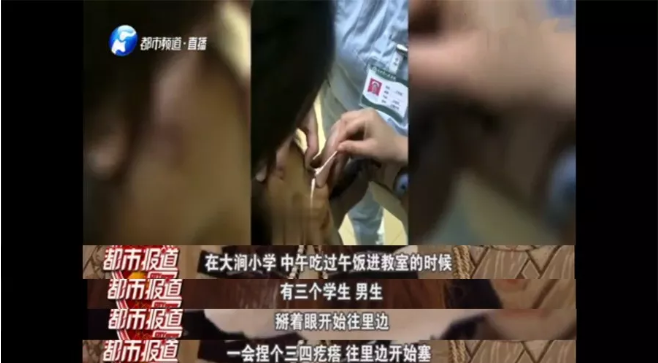
It is intolerable to put sand into your eyes, let alone stuffing paper balls into your eyes. This is simply torture and is likely to cause permanent visual damage to your children’s eyes.
I didn’t expect bullying to appear in 7-year-old children, and I didn’t expect such a small child to have such malice.
However, when the principal of the school was interviewed by reporters by telephone, he actually said that this was “a play between children and no malice”.
Bullying on campus comes earlier and worse than you think.

In recent years, with the media exposure, bullying on campus is no longer uncommon and has become a social problem.
On August 25, 2019, a primary school girl in Rucheng, Chenzhou, Hunan Province was slapped or kicked by several students. Both sides of the incident were students of Tuqiao Town Central Primary School.

At about 2 pm on December 14, 2018, Ma Moumou and Zhao Moumou, first-year students from Ningxian County, Gansu Province, pushed and beat Xiaoyu (pseudonym), a classmate, causing her to fall to the ground and take off her trousers. They used the broom in the classroom to disturb Xiaoyu’s lower body, causing her lower body to be injured and bleeding profusely.

On June 28, 2019, a junior high school girl in Guangxi was beaten by several girls in her dormitory.

On April 5, 2019, several girls in Liuzhou bullied a girl in the toilet, and the victim was slapped about 20 times.

According to the 2017 “China School Bullying Survey Report”, in primary school, the proportion of bullies and bullies is 22.2% and 6.2% respectively.
Various examples of campus violence do not exist alone. Students who have suffered one form of violence are often vulnerable to other forms of violence.
The data show that 7.5% have suffered violence from all four examples of verbal bullying, social bullying, violence and cyber bullying, 11.1% have suffered violence from three examples, 18.9% have suffered violence from two examples, 19.9% have suffered violence from one example, and only 42.6% have not suffered any form of campus violence.
The child was bullied. Do you want to teach the child to fight back?
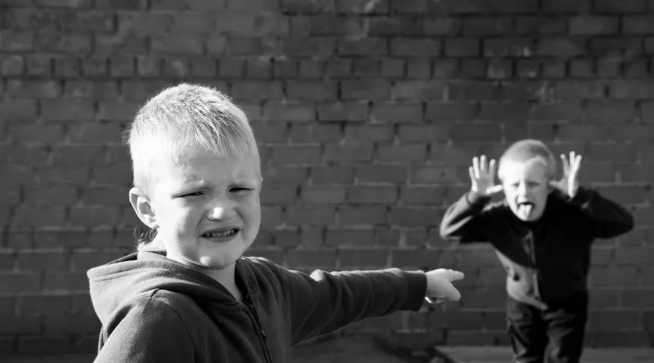
From bullying to being bullied, parents are most common in the following four views:
Tell the elders in an appropriate way;
We should try our best to avoid direct conflicts.
If it is not a major event in what, one must know how to suffer losses.
Call back.
Every family has every family’s answer.
Let’s tell a true story:
A girl and her mother went to an amusement park to play. Suddenly, a boy rushed up and took the toy from the girl’s hand and slapped the girl severely.
The girl stretched out her hand to fight back against the boy and hit him on the arm. The boy cried loudly and lay on the ground rolling.
At this moment, the boy’s mother came running up, holding her son in her arms and kept asking, “Did your sister hit you?” ]
The boy forgot that he had made a mistake first and only said, “Sister hit me.”
The boy’s mother said maliciously to the girl’s mother, “You have to make your daughter apologize.” And she seemed to ignore the shallow palm prints on the girl’s face.
The girl’s mother told the boy’s mother about the whole incident and said: If your son apologizes to my daughter, my daughter can also apologize to your son.
After hearing this, the boy’s mother glanced at the girl’s mother and left with her son in her arms.
Some people may wonder: Why didn’t the girl’s mother hold her when she saw the child fight back?
Because she believes in her child’s judgment.
In children’s hearts, love and hate are always clear. TA people are born to fight back against those who hurt TA, and this is the most precious edge and corner of people at first.
Tolerance to other people’s injuries and even the education method of repaying hatred with good may gradually make children lose their initial judgment on the world’s likes and dislikes, and let the hurt people know that they cannot be hurt at will. In fact, it is an instinct.
How to cultivate children’s [unruly] ability?
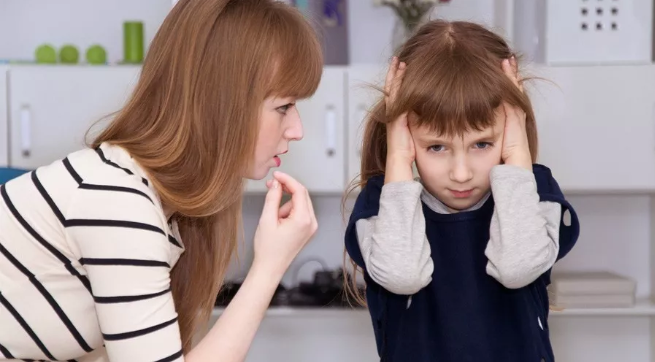
Of course, knowing how to fight back after encountering violence is the follow-up. The most important thing is that we all hope our children have the ability to be [not easy to handle].
What can we do?
1. Teach children to learn to safeguard their rights and express their willingness to protect themselves.
No matter your consciousness, body or articles, you must firmly defend your rights and let the other party know that you are not a soft persimmon to be kneaded by others.
[You are wrong! ]
[It’s wrong to hit people! ]
This is my stuff. Give it back! ]
Many bullies take temptation when hitting people at the beginning. If you don’t resist and only know how to cry, he will only intensify his efforts and slowly cross the range of normal interpersonal relationships to rob the rights originally belonging to you.
Defending one’s own rights and interests is a very important link in children’s interpersonal communication ability, because it means a bottom line that can kill others’ bullying of you in temptation.
2. Teach children the ability and skills to protect themselves.
I remember a video on the Internet before.

A father went to watch his daughter rehearse ballet and accidentally found his daughter knocked down maliciously by another girl.

The teacher turned around to remind her daughter to stand firm. The daughter felt very wronged, while the girl who pushed the person responded with provocative eyes.
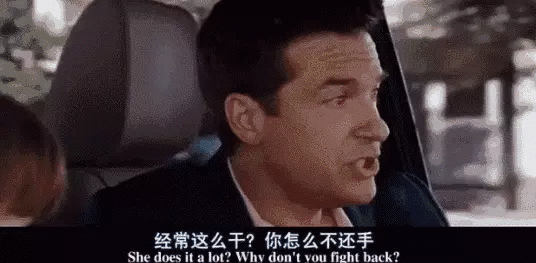
The teacher turned around to remind her daughter to stand firm. The daughter felt very wronged, while the girl who pushed the person responded with provocative eyes.

The father was speechless for a moment and then taught the child: “If there is such a situation again, you must fight back!” ]
In the end, the daughter was bullied by the previous girl during the performance. This time, the daughter fought back bravely.
Of course, this is a video, whether to call back or not will vary from person to person, but if you can’t, you can’t let people bully you, can you?
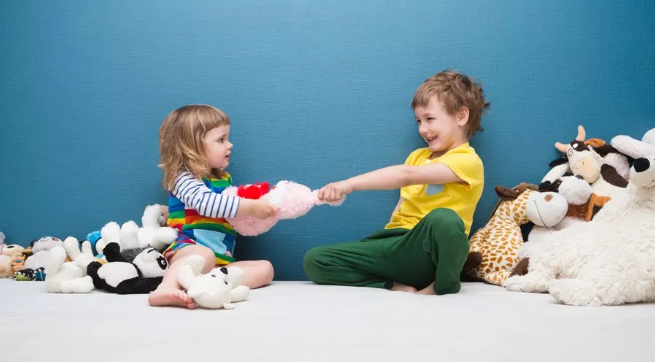
3. Accept children to follow their instinct
We don’t have to hypocritically say to the child: [can’t hit people]. Because this is his instinct to protect himself.
What we want to teach our children is discretion. When fighting back, where can’t we fight?
When a child does not fight back, what we need to understand is the reason why he does not fight back. Don’t think it is useless for him to suffer losses, but accept his emotions.
Why is this very important, because this kind of empathy will empower children and their choices will be understood and supported by their parents. For parents, they can build close trust with their children.
On this basis, children will slowly develop their own aura:
Just because I don’t like to do things doesn’t mean I will be bullied at will.
4. Establish Communication and Trust with Children
The child endured the pain and humiliation of his eyes but did not tell his parents.
A 2010 research report by Petrosina, Guckenburge, DeVoe and Hanson, researchers at the American Center for Educational Development, pointed out that 64% of children chose not to tell others after being bullied, while only 36% chose to tell others and seek help afterwards.
Data from the China Youth Research Center show that the reason why children are unwilling to tell their parents after being bullied is that they feel ashamed or afraid of being scolded by their parents. Or worry that bullies will intensify after parents come forward for themselves.
Pay attention to children’s abnormalities, build children’s trust in us, and let us become the backing of children.
